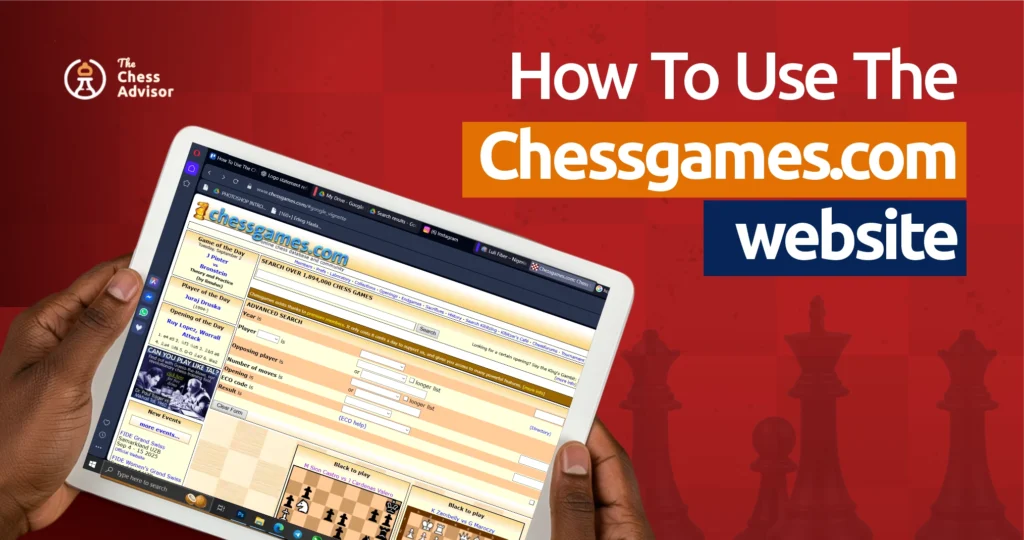Picture this, you want to study a famous game played by a Grandmaster you just read about. You could spend hours digging through piles of chess books or simply head over to Chessgames.com and find the exact game in seconds.
Chessgames.com is an online chess database and community hub that provides access to millions of games, openings, player profiles, and discussions. It’s a one-stop resource for chess enthusiasts of all levels.
What Chessgames.com is All About
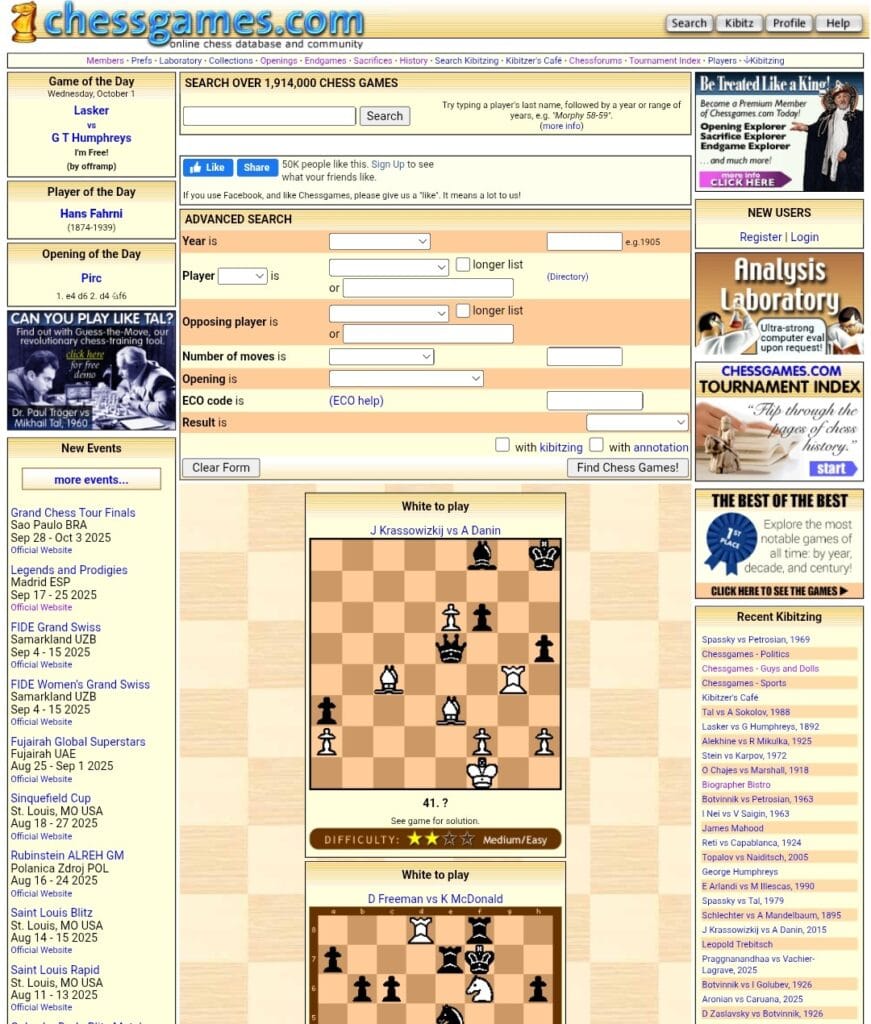
At its core, Chessgames.com is a repository of chess games with an active community built around it. The platform offers a wide range of features:
- Collections of Games: Easily search games by player, opening, event, or year.
- Opening Explorer: Study how specific openings were played throughout history.
- Endgame Database: Browse instructive endgame examples.
- Tactical Exercises: Test and sharpen your calculation skills.
- Computer Analysis: Like other chess websites for computer analysis, it provides Engine-assisted evaluations of games.
- Forum (Kibitzing): A lively discussion board, often considered the site’s highlight.
- Game History: Historical context and even player annotations for famous games.
Collections of Games
The search function is the backbone of the site. You can:
Search by a player’s name.
Use advanced search to filter games by:
- Player color (White or Black).
- Number of moves played.
- Opening variation.
- Tournament or year.
With thousands of games at your fingertips, this is one of the fastest ways to bring a position or historic encounter to life.
Chess News
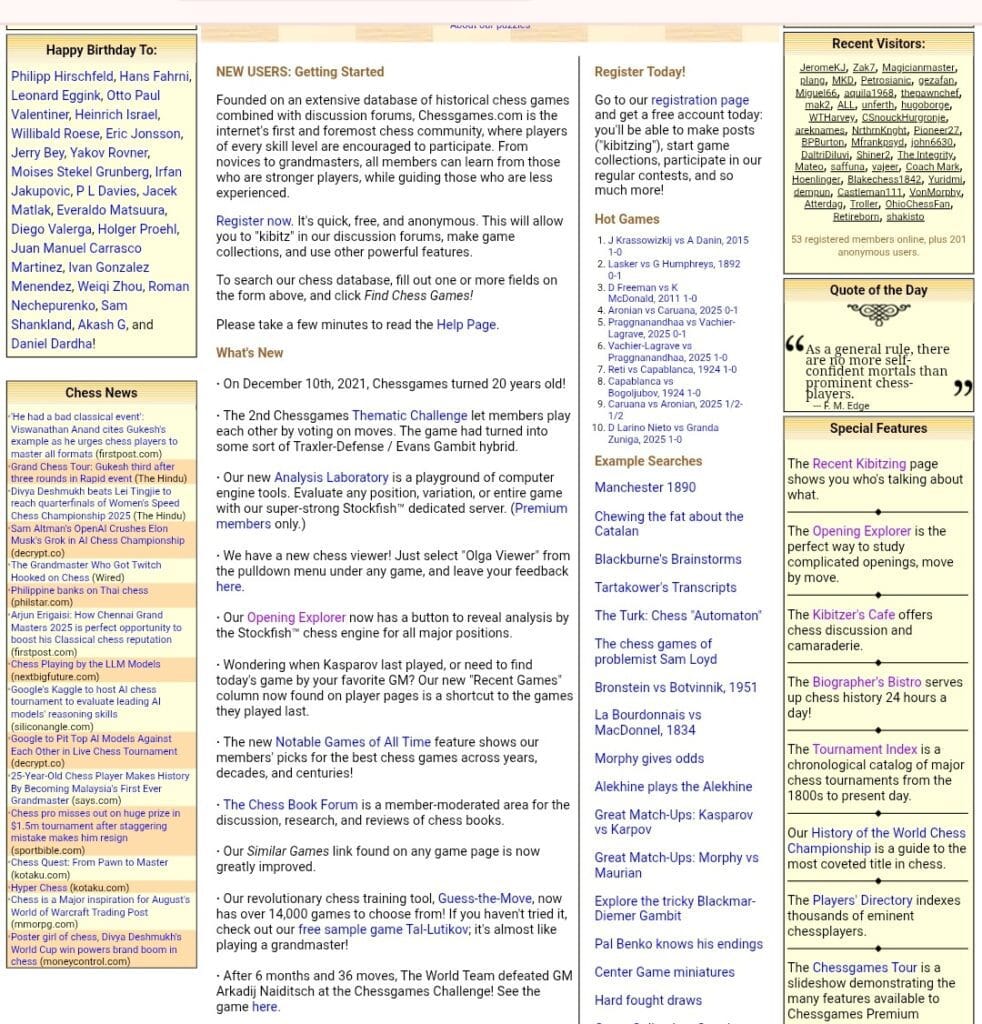
Chessgames.com also curates chess news and updates from top-level events. This section is handy for fans who want to follow the latest happenings in the chess world while also being able to look back at the games played.
Although when compared to other News websites like Take Take Take and Chess.com, it lacks in functionality and features.
Tournament Index
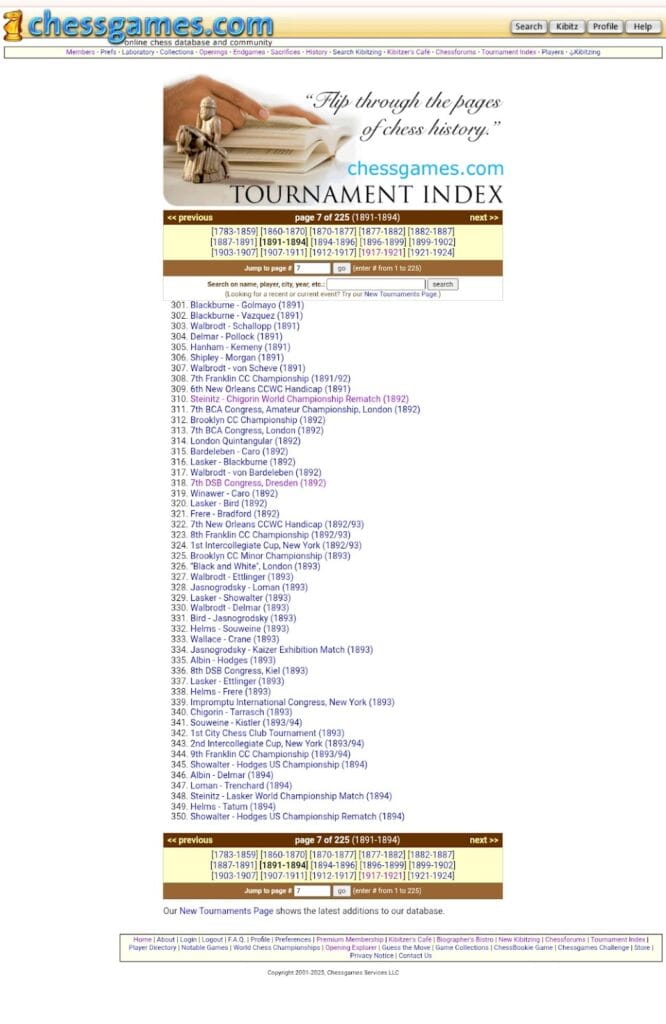
The Tournament Index is one of the hidden gems of the website. It provides a detailed archive of tournaments, from Philidor’s blindfold simul in 1783 to modern super-tournaments.
For each event, you can usually find:
- The tournament format and rules.
- Participating players.
- Standings and results.
- Links to games from the event.
Homepage Breakdown
The homepage can feel packed at first, but it’s well-organized into sections:
- Game of the Day: A handpicked instructive game.
- Player of the Day: Spotlight on a notable player.
- Opening of the Day: Explore a fresh opening line daily.
- Community Features: Read and contribute to kibitzing (commentary) and discussions.
This makes it easy to jump right into learning or participating.
Exploring a Game
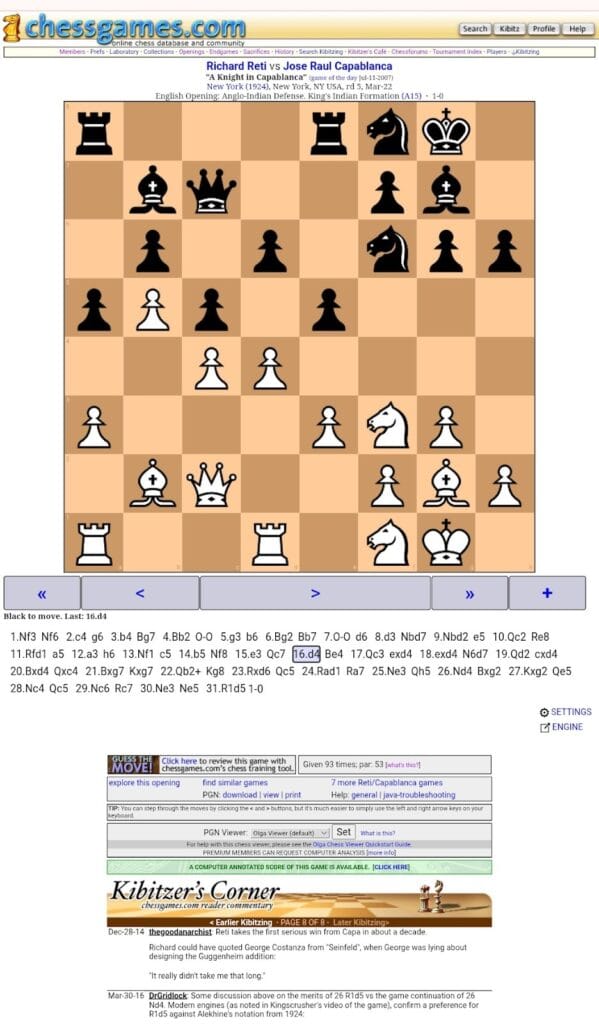
When you click on a game, several features stand out:
- Export the PGN for study in external software.
- Find similar games based on position or opening.
- Explore related openings to expand your repertoire.
This provides flexibility if you want to look at the game in other chess analysis software.
Unique Features
- Kibitzing (Forum Commentary): A hallmark of Chessgames.com, where players analyze, debate, and joke about games.
- Guess the Move: An interactive feature that lets you play through a game as if you were the player, testing your instincts against the master’s choices.
Pros and Cons of ChessGames.com
Pros
- Comprehensive database of games.
- Easy search and filtering tools.
- Strong community and historical context.
- Great for quick look-ups while reading chess books.
Cons
- Some features are locked behind a paywall.
- Outdated design and interface.
- Not fully mobile-friendly.
When to Use Chessgames.com
The website shines in situations such as
- Studying from a chess book and wanting to replay the referenced games.
- Searching for specific players’ games.
- Exploring opening ideas and variations.
- Looking for middlegame strategies from historical classics.
- Keeping up with the latest tournaments.
- Deepening your understanding with community commentary.
Tips for Getting the Most Out of ChessGames.com
Although chessgames.com is intensive to use, there are a few strategies that can maximize the website’s potential for chess enthusiasts.
Combine the Book study with the Website
When reading a Chess book, don’t just skim through the book or play alone on the board. You can easily search the reference game on chessgames.com and play through them interactively while also getting a more detailed historical context.
This allows you to experience the full flow of the game rather than just snippets.
Use the Advanced Search Regularly
Many players typically just search players by name, but real power lies in the advanced search since you can find all games in a specific opening by filtering the ECO code, by year to track how an opening evolved, or even by move count if you are studying short tactical miniatures.
Engage with the Kibitzing Community
It is easy to overlook the forum discussions. However, some games have decades’ worth of comments from players of all levels.
These comments often point out hidden ideas, mistakes, and even historical context. Adding this to your standard game analysis gives a balanced human-end computer perspective.
Practice with Guess the Move
Instead of passively watching the Game, challenge yourself with the “Guess the Move” feature. This remains another underrated training tool on the website. However, its value is that it forces you to think like the player rather than just observing.
Explore Tournaments in Chronological Order
If you are a history enthusiast, try browsing tournaments decade by decade. It is rather interesting to see how chess theory progressed from the romantic sacrifices in the 1800s to hyper-modern chess in the modern age.
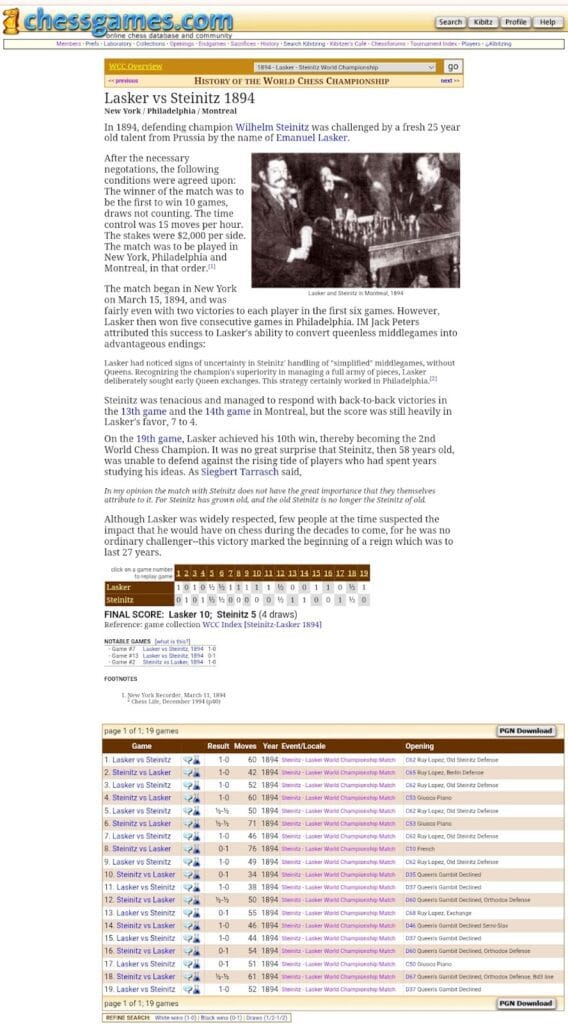
Conclusion
Chessgames.com is a treasure trove for chess players who want both practical tools and historical insights.
Whether you’re preparing for a tournament, exploring an opening, or simply curious about how the masters played, it’s a go-to resource that continues to hold its value despite its dated look.
With this guide, you should find it easy when next you want to use Chessgames.com to get better at chess.
